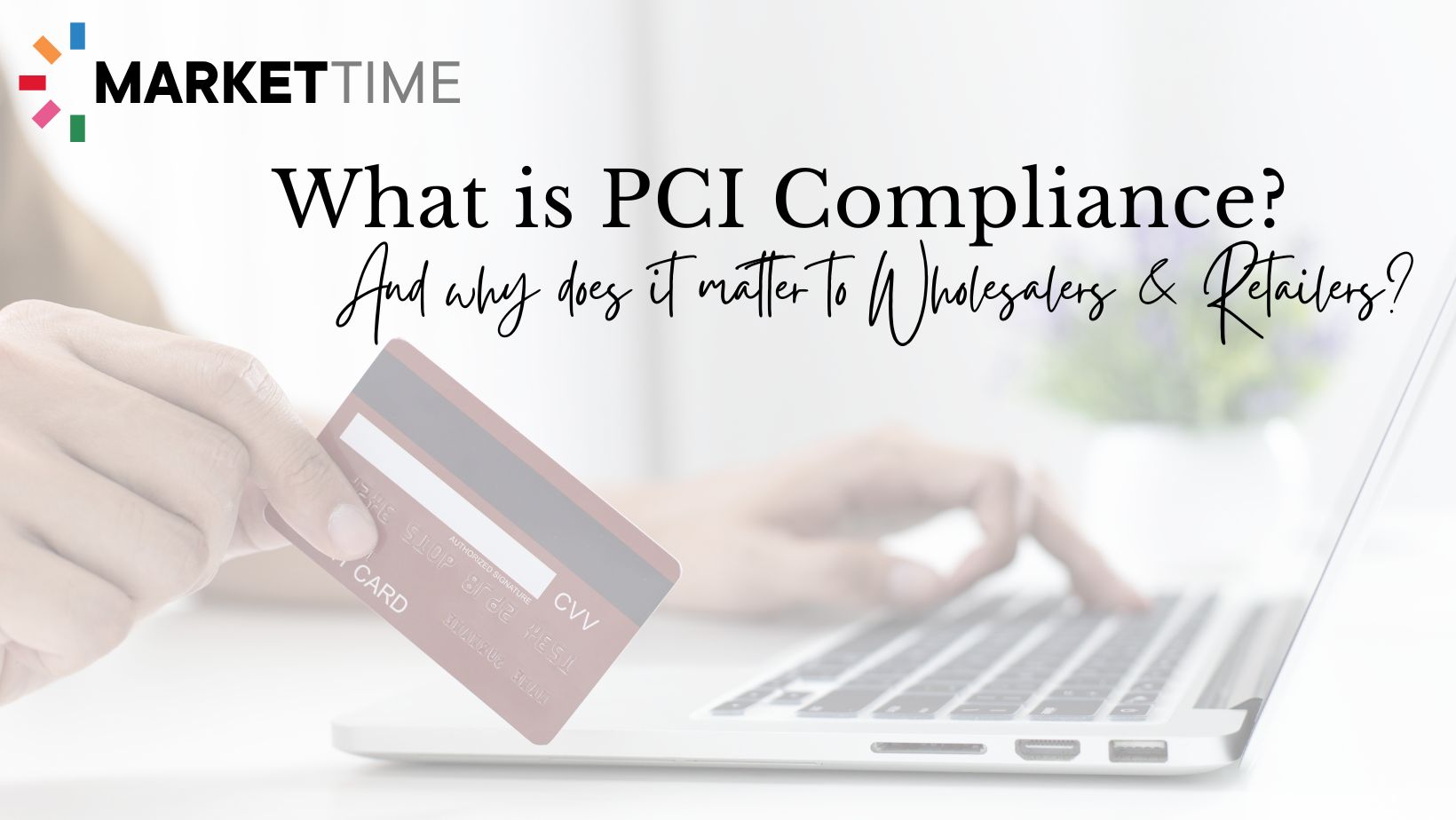What is PCI Compliance and Why Does it Matter to Wholesalers and Retailers?

Wholesale brands in the modern economy must pay attention to credit card payments if they want to survive. Since credit card fraud, identity theft, and compromised data are on the rise, protecting the integrity of credit card transactions is crucial. If this data is handled correctly, retail buyers will retain trust and loyalty to your company.
Credit card transactions are the safest when you comply with the standards set by the Payment Card Industry (PCI). Rest assured, the MarketTime and Brandwise platforms are fully PCI compliant. What does this mean for your brand? Read on to learn the ins and outs of PCI compliance and why it's crucial.
What Is PCI Compliance?
The PCI Security Standards Council (PCI SSC) released requirements in 2006 to ensure all businesses that process, store, or transmit credit card information maintain a secure environment to reduce credit card fraud. Businesses that accept credit card payments can benefit significantly from the SSC's comprehensive framework, tools, and support resources.
Initially, the regulations only applied to merchant processing but were later extended to cover encrypted online exchanges. The Payment Card Industry Data Security Standard (PCI DSS) is the backbone of any respectable credit card company's safety measures.
Credit card information is kept safe and secure thanks to PCI compliance standards, which also help reduce the risk of fraud and data breaches. Credit card information that is not encrypted is a prime target for hackers. If hackers obtain this information, they can use it for identity theft and other forms of fraud.
Why is PCI Compliance Important?
PCI compliance can seem daunting for any business, especially for a small one. The seemingly endless list of rules and regulations can intimidate a newcomer. However, the rewards of protecting customers' credit card information far outweigh the effort needed to meet regulatory standards.
To begin, being PCI compliant is necessary, and businesses that aren't are subject to penalties for contract violations and carelessness.
What's more, people who don't have it are at risk of having their personal information stolen or used fraudulently. If your systems are PCI compliant, there is less chance of a data breach occurring on your network.
Your customers trust in your ability to keep their credit card information secure and their loyalty can be severely damaged by even one security breach. In addition to damaging the company's reputation, data breaches can lead to:
- Legal action
- Insurance claims
- Canceled accounts
- Fines from payment card issuers
- Government action
In addition to ensuring the security of the global payment card data security solution, PCI compliance is also an essential factor in ensuring its success. It's an ongoing procedure that helps forestall further security breaches.
How Does This Impact My Wholesale Business?
Following the necessary and ongoing security measures are fundamental to preventing data breaches. These steps make you less vulnerable to cyberattacks and insure you and your brand.
The monetary costs associated with fines and compensation due to non-compliance are significant. The cost to your reputation and the trust you've built with your industry partners can be even more damaging since they can have a long-term impact on your company's revenue. Compliance with PCI DSS shows customers that the brand takes the security of their personal and payment information seriously.
Show your retail buyers that you are committed to protecting their personal and payment information. This builds trust and loyalty essential to your success.
PCI Compliance at MarketTime
In addition to the high stakes and potential financial penalties associated with non-compliance, PCI Compliance can be intimidating, complicated, and time-consuming. This assurance is provided by Brandwise and MarketTime to protect you, your agencies, your salespeople, and, most importantly, your retail customers.
Want to learn more? Request a demo with us.

